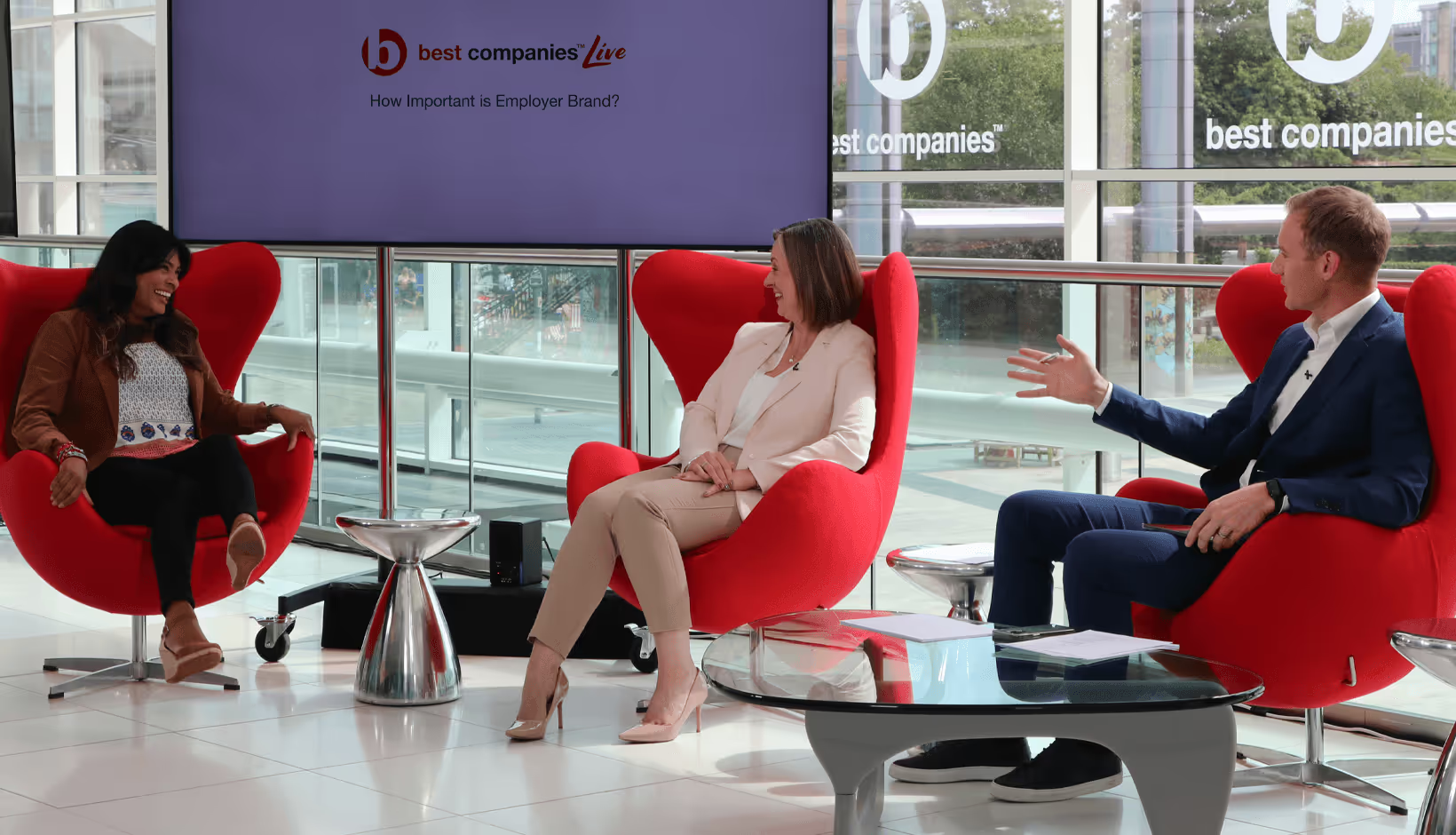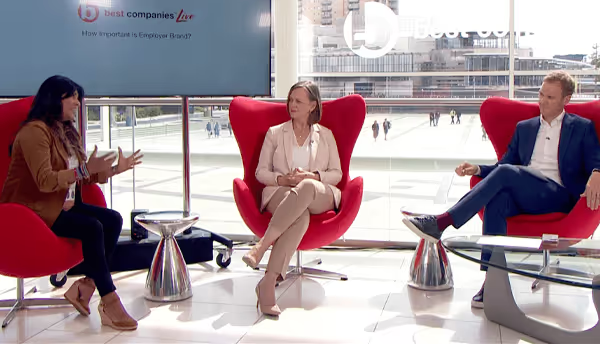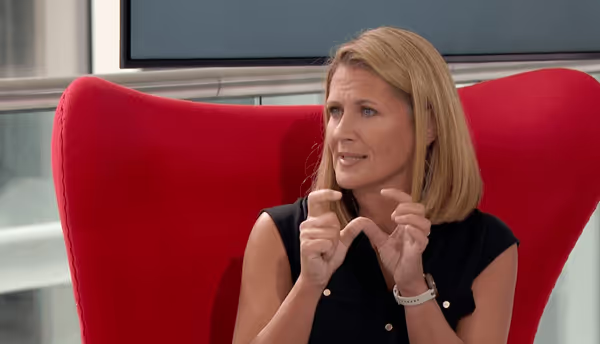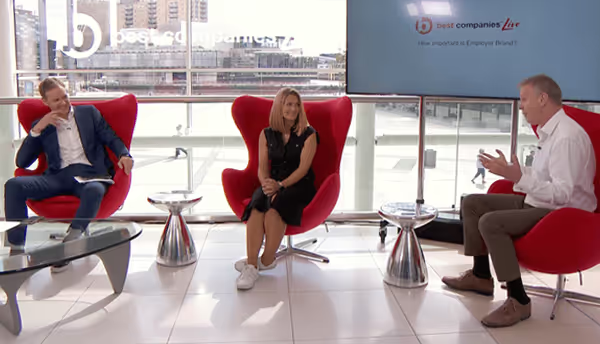State of Engagement 2026 Report |
Download report

As far as the current recruitment market is concerned, things have never been tougher. There’s a huge scramble for talent as organisations across all sectors emerge from the challenges of the past two years needing extra people to help achieve their goals.
Best Companies data shows that organisations with a clear purpose, principles, and plan are more likely to be attractive to job seekers, as well as keeping hold of the staff they currently have. So, no wonder then, that more and more organisations are marketing the workplace experience they offer through a variety of different platforms and means.
However, it goes without saying that those selling a fantastic experience must deliver it. So just how do you demonstrate you’re a great place to work, communicate your values and benefits, and advertise your overall value proposition to maximum effect?
“We exist to enrich lives, starting with the lives of the people in our teams.”
For Nisha Katona, Founder and CEO of Mowgli Street Food, the organisation’s whole ethos is built around making the lives of the people that work there better, and she believes passionately in holding the company to account to ensure that this happens.
“I founded Mowgli as I needed something that got me out of bed every day for something bigger. We exist to enrich lives, starting with the lives of the people in our teams,” she explained.
“And it’s not good enough to just say that’s what we do, we need to ask whether we have the diagnostic tools in place to know it. We have contentment assessments where we ask everyone twice a year if they feel purposeful, nourished, and fulfilled. If they do not, we ask two questions; what we can do differently, and how we can help. We’re constantly aware of whether what we’re trying to execute is being done, and whether we’re making a difference to people’s lives.”

In addition, wanting the best for its people starts during the recruitment process at Mowgli, and extends to the journey an employee goes on during their time spent working for the organisation.
“We truly care,” Katona continued. “We hire of the basis of grace, emotional intelligence, and a love for graft. When you have that, every person that comes under your tutelage you want to see flourish. Their success is our success.”
The company is so passionate about its people, it not only ensures they are flourishing during their time of employment, but it helps them to move on when the time is right.
“Often our people don’t leave out of belligerence, it’s more so that we don’t have the role they’re looking for at the time they want it. So, we help them out with things like application forms for other organisations, just like you would help a family member,” Katona explained. “Ultimately, if people are not content then the right thing to do is help them move on.”
“Employer brand is very important, but more important is that it's genuine.”
Also believing that upholding your promises as an employer is of paramount importance is Jane Lockwood, Chief Operating Officer at IT consultancy, Daemon. She explained that the business is anchored by a set of core values that it uses to guide its every decision around people and culture.
“Employer brand is very important, but more important is that it's genuine,” she explained. “At the very beginning, about seven years ago, we came up with five core values that we live and breathe by. We then set up a culture working group that made sure all those values are represented throughout the business and brought our recruitment in-house to make sure the interview process reflected those values.”

Lockwood explained that this approach sees the firm carry out a three-stage interview process, including a technical interview, cultural interview, and a chat with the founders. This, she says, allows for a two-way conversation to ensure that the candidates know that Daemon is a great employer, but also that they will enjoy working for the organisation.
“By the time people start, they are totally bought into the brand,” she continued. “They are aware of it, they know we’re all responsible for it, and they know that we all live it. This makes it a lot easier to maintain, as it’s well established.”
“You have to recruit people who are a good cultural fit.”
For Jo Barnes, Managing Director at Sewell Estates, the recruitment process is key to ensuring the right people come into the business to ensure the continuity of the brand and culture it’s worked so hard to create.
“We’re a family business and we treat people like family, just like we expect them to treat each other like family,” she explained. “This doesn’t just come out of nowhere; you have to recruit people who are a good cultural fit. For us, this means looking for people who are ethically minded, very positive, and who are good at teamwork. If they are ethically minded they'll always do the right thing, not just with their teams, but with our customers and the communities we serve as well.”
This healthy, family-feel culture it has nurtured is something that Sewell Group is eminently proud of, so what does Barnes think about the culture potentially changing as new people enter the business?
“It's been a big thing for us over the years and we're shamelessly protective of our culture, but we understand that will change with every new person that comes on board and that's absolutely right,” she explained. “A healthy culture isn't a dead, static culture, it's a living, breathing thing.”
“I'm absolutely convinced that being a poor employer is the most expensive thing I can think of.”
For Dominic Hare, Chief Executive Officer at Blenheim Palace, there’s a key focus on maintaining, and living, its employer brand through a series of business goals.
“We build really ambitious things into our business goals, things that our employees really connect with,” he said. “These include goals around multiplying our contribution to the local economy and community, building truly affordable homes, training a large number of apprentices, and going carbon zero in a radically fast way. We’re explicit that being a top employer is also one of those goals and is arguably the most fundamental.”

Hare explained that actioning these goals does, of course, require the conventional assets of money and land, however, he believes that investing in these areas is crucial to both attracting and retaining staff, as well as having a group of people in the business that passionately believe in the same things and are committed to seeing them come to fruition.
“I work with people who question whether investing resource into the right employer/employee relationship and employer brand is worth it, or whether it's a cost we can save on in difficult times,” he explained.
“And I'm absolutely convinced that being a poor employer is the most expensive thing I can think of. When you think about the time you'd lose in recruitment, in management, and in lost knowledge, I can't think of a more expensive way to run the business than not to invest in employer brand.”
To enjoy this session in full, see the full recording here.
To return to the Insight hub for more articles from Best Companies please click here.